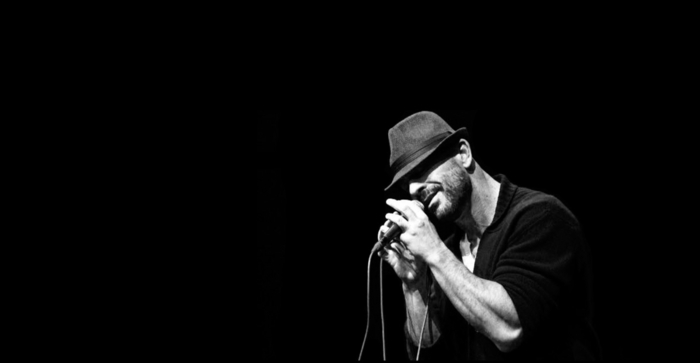Ares Rueda (Barcelona, 34 years old) is afraid of losing his disability pension. It is not because of the money, but because if she runs out of it and is forced to return to work, she thinks she will not know how to do it, because she has no experience. In 2015, when he was 26 and had a whole professional life ahead of him, he was diagnosed with leukemia. Months later, a medical tribunal granted her absolute permanent disability, which completely disqualified her from any profession or trade. "I am afraid to enter professional life after so much inactivity, after so long away from the labor market due to the disease and its sequelae."
The Spanish Association Against Cancer (AECC) estimates that 2.2 million people in Spain have been diagnosed with cancer. They are survivors whose lives are complicated in ways that go beyond health. The President of the Government, Pedro Sánchez, announced last week a new regulation to guarantee oncological forgetfulness that aims to eliminate the obstacles they suffer to subscribe life and health insurance, which makes it difficult, for example, to access a mortgage. But that's just the tip of the iceberg. 21% of those diagnosed have had to stop working and 14% have had to change jobs, according to the AECC. Cancer is a tipping point that can literally ruin those who suffer from it.
Begoña Castro, social worker of the association, sees every day patients who try to reintegrate into the world of work and cannot. Because, like Ares, they have been away for many years. Or because they do not see themselves with the strength to perform the tasks they used to do. "There are consequences that are not visible at all. For example, those derived from treatments, extreme fatigue, neuropathies in hands and feet, memory failures, even mobility problems and movement from place to place, "he lists.
Upon completion of treatment, patients undergo a medical tribunal, which rules whether they are fit to return to their post, if they have any disability (which gives them tax advantages and facilities for hiring), an absolute permanent disability, which exempts them from working, or total, which prevents them from returning to the type of job they performed (because it is incompatible with the sequelae), But it qualifies them for other professions. "Patients are often very afraid of the latter. Imagine a physiotherapist suffering from breast cancer, which often affects the lymph nodes and therefore the arms. You need many precautions, you have reduced mobility, you can not take weight; It is incompatible with their work. Maybe he's 40 or 50, and what does he do? Is it reinventing itself as administrative? What company is going to hire you without experience?" asks Castro.
Situations like this put 27,000 families at risk of economic vulnerability every year, according to the AECC. An example of this is Alina Cosma, who is 35 years old and was diagnosed with breast cancer in 2016, a few months after having her third child. He has been out of work since then until a few months ago, when he found a job in a small NGO to which he dedicates a few hours a week. She reconciles the meager salary she earns in the organization with the minimum vital income, although it would not be enough if it were not for her husband's salary.
Aline Cosma walks through a park in Madrid.JUAN BARBOSA
Cosma was about to renew her clerk contract when she was diagnosed. And the company decided not to count on her again. She entered a succession of operations that had her several years off. And then the pandemic hit. His hope was that he would be given a permanent inability to access a pension, because he has "many sequelae that are not seen". "It seems silly, but after cleaning my house, which is quite small, I can't move because of the effort," he says. But the court considered that he could be reinstated.
In the case of Ares Rueda, he hardly had time to join the world of work. "I was so young when I was diagnosed... I would have done a thousand things that I can no longer do," he laments. She is studying Psychology, and then obtaining a Master's Degree in Psycho-oncology, and is a volunteer at the Association of Relatives and Friends of Cancer Children of Catalonia (AFANOC). "I want to feel fulfilled, it's my number one goal, and since I can't work, study and volunteer are my only options."
Leukemia is a type of cancer that often manifests itself in childhood and youth, which puts the rest of life very uphill. A survey by the Josep Carreras Foundation of 400 patients and survivors aged between 18 and 35 showed that half of them continued studying during treatment. More than 50% reported physical difficulties to study derived from the disease. And, although 8 out of 10 return to study, 20% have lost calls and 40% must pay the fees again. In the workplace, 80% indicate a negative impact, 20% suffer a dismissal or non-renewal and half find additional inconveniences to return to the labor market.
"I lost my health and life as I knew it"
In 2013, at the age of 36 and with a promising career as a television presenter ahead of her, Elordi García (Laskao, Gipuzkoa, 45) was diagnosed with high-risk leukaemia. "I lost my health and life as I knew it overnight," she says. Now, after a bone marrow transplant, countless treatments full of complications and side effects, several isolations and four admissions to the Intensive Care Unit (ICU), the journalist is also not allowed to work, as a medical tribunal gave her reviewable disability. Without her asking or wanting it.
Elordi García, leukemia survivor and author of the book "Unstoppable to the Core" (2021). Alvaro Garcia
"First I was off for a year, and then we extended it for six months. Then came the medical tribunal, and gave me the reviewable disability. It turns out that the public administration can only keep your place for two years, and after two years I was not recovered. It took me five years to be fine, and obviously I lost my place," says Garcia. "My disability is reviewable, yes, but I do not want to ask for its review, because taking into account my hospital record they would give me the absolute permanent one," he laments. To feel fulfilled and useful despite not having a job, García wrote Unstoppable to the Marrow (2021), a book of self-improvement and resilience.
"Legislation should be enacted in this regard. To educate both public administrations and companies that going through cancer does not reduce work capacity. There is a stigma that cancer survivors are going to be taking casualties every now and then, and the only thing we would like is not to set foot in a hospital again in life," he claims. "As a cancer survivor, it's all obstacles, surviving cancer is penalized," he concludes. It refers to the problems encountered not only in applying for mortgages and insurance and finding work, but also in renewing the driver's license.
Both García and Rueda, the girl from Barcelona, denounce having been discriminated against by the DGT, which asked them for a medical report as their medication did not affect their driving and renewed their license for only three years. This is one of the issues that the new legislation on oncological forgetfulness aims to solve. "Why do I have to be going through this situation when what I'm trying to do is leave behind — not forget, because this is never forgotten — that I've had cancer?" asks Rueda. "It's like every other time you're being reminded that you've had cancer and that you have to do everything differently than everyone else."
"Discrimination and lack of understanding in the work environment, rehabilitation needs, the economic implications of benefits not covered by the public service portfolio or the emotional impact of the disease are just some of the obstacles that hinder this reintegration. Therefore, it is necessary to develop policies that protect the rights of people with chronic diseases, with a biopsychosocial approach that addresses health in a comprehensive and effective way", confirm from the Patient Platform.
Cancer is a disease that has an increasingly better prognosis. More than half of those who suffer from them overcome it, but this translates into a greater number of chronic patients with problems such as those described. "We are not socially adapted to this reality," laments Begoña Castro, who calls for greater involvement of public resources to help survivors and more facilities on the part of companies. "Patients want to work, because work means health. But they can't always do it under the same conditions," he concludes.
Subscribe to continue reading
Read without limits
Read more
I'm already a subscriber








